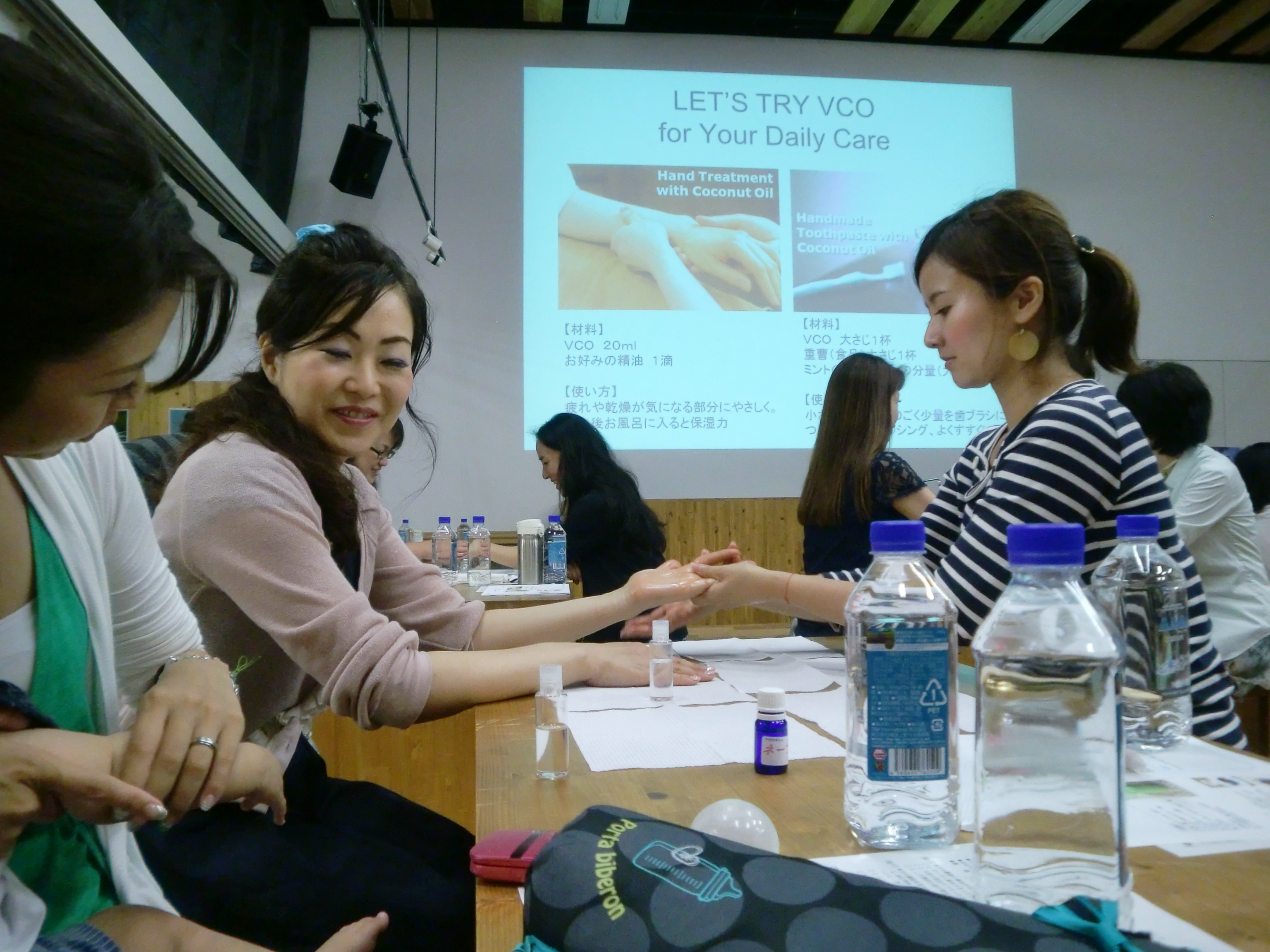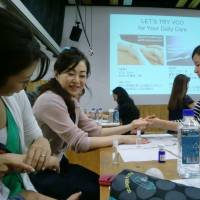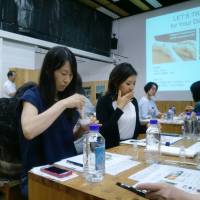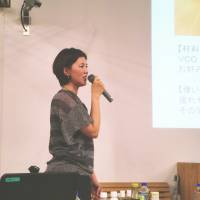With the growing interest in coconut oil as a healthy food and natural cosmetics ingredient, a workshop on ways to use it was held earlier this month at the Minato City Eco-Plaza in Tokyo.
The event took place on the evening of July 10, as the second session in a series of educational programs promoting eco-friendly lifestyles. The programs are co-organized by the Minato City Eco-Plaza and The Japan Times, in collaboration with various embassies in Tokyo. The idea is to learn about environmental ideas and eco-friendly lifestyles from around the world through different embassies, which serve as a window into each country.
This time, the event was held in collaboration with the Embassy of the Republic of Fiji and was aimed at providing people with an opportunity to learn about the eco-friendly lifestyle of Fiji through coconut oil.
"The traditional herbal medicine in the villages on Fiji's islands, where people live with nature, has been passed down for generations," said Yuko Hara, who served as speaker at the event.
Inspired by the South Pacific herbal medicine of Fiji, Hara has been involved in the "Organic Humanness" project since 2007, and established Rebula, a company that promotes organic products, in 2009.
"Within Fijian herbal medicine, the coconut has played the primary role," Hara said.
The coconut palm is found throughout the tropics and it is particularly important in the South Pacific islands. In the absence of land-based natural resources, coconut palms have provided people with many of their basic needs, from shelter, utensils and decorations to medicine and, of course, food and drink.
Hara gave a presentation titled "How to enjoy coconut oil," which provided basic information about coconuts, especially on virgin coconut oil, which is rich in medium chain fatty acids and possesses excellent oxidative stability.
She explained how coconuts have been used in Fiji and provided some ideas on how to use virgin coconut oil in everyday life in Japan, such as in smoothies, chocolate, toothpaste and treatment oil.
During the workshop in the latter part of the event, participants enjoyed making natural toothpaste by blending baking soda with virgin coconut oil and adding a few drops of mint essence.
People also gave each other hand massages, using virgin coconut oil with a few drops of orange essence, under the guidance of aroma instructor Mari Gokita
Despite the threat of a typhoon, most of the 30 people, including three men, or nearly all of the pre-registered participants, attended the event, highlighting a keen interest in a healthy lifestyle using coconut oil.
"From cooking, baking and beverages to tableware and furniture, we use coconuts for everything," said Sereana Tabuyagona, personal assistant to Fijian Ambassador at the embassy.
"There are more than 300 islands in our country and each village has a different traditional medicine, which we respect," added Kelera Savu, second secretary of the embassy. "And coconut is the primary thing we use in common," Savu said.
"Through coconuts, I hope that we can learn some part of the lifestyle that Fijians have developed in harmony with nature," said Hara to close the event. "There are reasons to trust what has been loved and passed down for many years, such as coconuts," she said.
This feature reports on a series of environment educational programs co-organized by Minato City Eco-Plaza and The Japan Times in collaboration with vembassies in Tokyo. For more information, call 03-5404-7764 or visit minato-ecoplaza.net .






